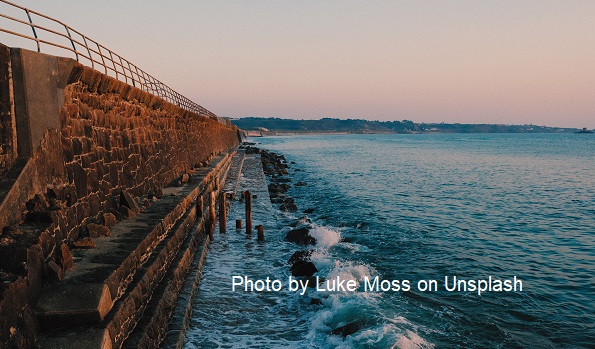In 2021, three times as many attempts to cross the Channel were recorded as in 2020. France is calling for an EU-UK treaty to open up “legal means” of reaching Britain, while UK officials say the hardline Nationality and Borders Bill will address the issue. In Calais, Afghans who fled the Taliban risk dying in freezing temperatures as NGO activities are limited by a 600,000 GBP loss of charity funding. The “warm welcome” the UK promised to Afghans in August is yet to eventuate: only a single family has benefitted from the Afghan Citizens Resettlement Scheme (ACRS).
35,382 people were recorded by French authorities as attempting to cross the Channel in 2021. 8,600 of those were rescued by French police while in distress at sea. This represents a three-fold increase on 2020, when much border-crossing was halted by the pandemic. Furthermore, French monitoring of the strait may be improving as the UK pressures its neighbour to “do its part” in controlling migration. The driver of risky journeys remains the lack of safe routes to seek asylum. According to Clare Moseley, founder of Care4Calais: “[Channel refugees] are some of the most vulnerable people in the world, having lost family members in bloody conflicts, suffered horrific torture and inhumane persecution. The Government tells us that people should travel by legal means, but if this were truly possible why would so many be risking their lives in flimsy boats?”
In response to the sharp rise in crossings, France says it will press the EU to negotiate an asylum and migration treaty with the UK to deter irregular sea journeys. This would require the UK to open up “a legal means of immigration… to seek asylum”. There is little appetite for such an agreement from either EU states or the UK. Home secretary Priti Patel insists that: “the real problem on illegal migration flows is the EU has no border protections whatsoever”. For the home secretary, the solution to Channel arrivals is the draconian Nationality and Borders Bill, which makes entering the UK irregularly a criminal offence and introduces life sentences for people smugglers. Tim Naor Hilton from ECRE member organisation Refugee Action says that tougher measures will not deter dangerous journeys. Indeed, smugglers will continue to profit “unless ministers open up more routes for refugees to claim asylum”. As the bill currently undergoes scrutiny by the House of Lords, former immigration minister Lord Timothy Kirkhope has criticised its conflation of immigration and asylum and non-respect for human rights, calling on the government to instead ensure safe routes.
Charities say 2,000 people stuck in Calais are at risk due to a combination of low temperatures, a funding shortfall, and relentless evictions of living sites. Many displaced people in northern France are Afghan, having fled the Taliban, and many are unaccompanied children. On 31 December, the celebrity-backed charity Choose Love pulled the plug on 600,000 GBP of funding previously supplied to aid organisations active in the region. NGOs said the loss of funding “could not come at a worse time” given the “increasingly hardline approach” by authorities on both sides of the Channel. Illustratively, French practices of destroying shelters and confiscating belongings remain brutal and regular. At least 150 evictions have taken place since Christmas, including one in which people were tear gassed by riot police on 2 January. In December 2021, Human Rights Observers recorded 125 evictions, with 199 tents and tarpaulins destroyed and 8 arrests.
In August, the UK government announced the ACRS would bring 5,000 Afghans to Britain in 2021 and a further 15,000 in future years. Five months on, only one family has been resettled under the scheme. Further, the Home Office is now boosting resettlement figures by including people flown out in the initial evacuation. Enver Solomon, of ECRE member theRefugee Council, says the scheme’s failure leaves people with an impossible choice: either stay in a country where they fear for their lives or embark on a dangerous journey. The number of asylum applications from Afghanistan tripled in the three months following the fall of Kabul, demonstrating that refugees are choosing the latter option. In 2021, pseudo-independent websites were set up by the Home Office to discourage asylum-seeking Afghans from making irregular journeys. The company that operates the websites has received a total 700,000 GBP of public money between 2016 and 2018, with 500,000 GBP more in the pipeline. For civil society groups, this insistence on deterrence, combined with moves to criminalise asylum seekers, is “disgraceful” given the illusory nature of legal pathways like the ACRS.
The Home Office also faces fierce criticism for doing little to help Afghans already in the UK. In December, there were more than 4,000 Afghans awaiting an asylum decision, of whom nearly 2,500 had waited more than six months. 12,00 Afghans who were evacuated in August began 2022 stuck in hotels with no certainty about their future. Even for those with status, the Joint Council on the Welfare of Immigrants notes: “Existing family reunion routes are restrictive at the best of times but, in the case of Afghans, the process has been completely stalled for months leaving people in unimaginable danger and with no safe route available”.
For further information:
- ECRE, UK: Commons Passes Anti-Refugee Bill, Asylum Seekers Denied Right to Work, Lawyers Challenge Boat-Driving Charges, Disquiet Over Non-Existent Afghan Resettlement, December 2021
- ECRE, Channel: Frontex Plane Deployed, Dehumanisation Decried, NGOs Hope for Turning Point on Safe Passage, UK Ploughs Ahead with Pushback Plan Despite Challenges, December 2021
Photo by Luke Moss on Unsplash.
This article appeared in the ECRE Weekly Bulletin. You can subscribe to the Weekly Bulletin here.

